St Johnstone 2014 Scottish Cup winners: Where are they now? (original) (raw)
St Johnstone won their first ever Scottish Cup 10 years ago when Tommy Wright and his team wrote their names into Perth sporting history.
Wright had a match-day squad of 18 for the clash with Dundee United, and used 13 at Celtic Park.
Only one of that group still at McDiarmid Park – but maybe not for much longer.
Courier Sport looks back at the contributions those players made to the club and finds out where they all are now.
Alan Mannus
The goalkeeper’s most famous save in the final was one he knew nothing about – a Nadir Ciftci free-kick striking the post and then falling fortuitously for him to gather on the goal-line.
For many Saints fans, this was the point they believed it was their destiny to win.
After spending seven years in Perth, Mannus returned to Ireland and won trophy after trophy with Shamrock Rovers before retiring at the age of 41 in November.
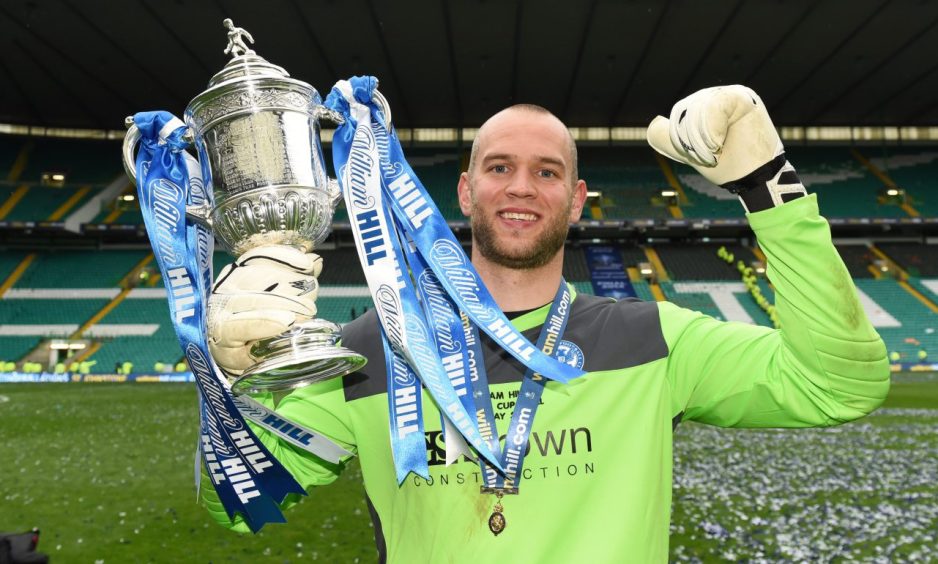
Alan Mannus celebrates his greatest day with St Johnstone – winning the Scottish Cup. Image: SNS.
He is still involved in football, having taken on a role as the Irish FA’s goalkeeping coach educator.
Dave Mackay
There can be no bigger compliment than the fact that future Premier League and Champions League winner, Andy Robertson, wasn’t able to have a big say on the outcome of the contest down the Saints captain’s side of the pitch.
Mackay only managed another season-and-a-half as a footballer before a hip injury curtailed his playing career.
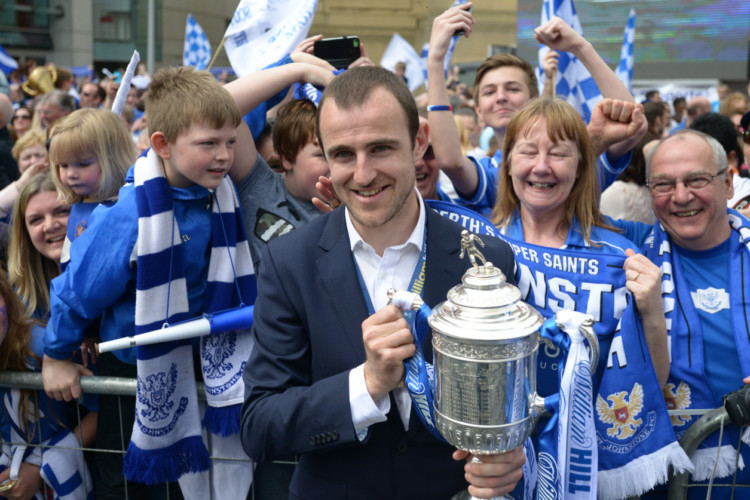
Dave Mackay the day after St Johnstone won the Scottish Cup. Image: DC Thomson.
He was the first of the cup-winning team to retire.
After managing Stirling Albion, he has since linked up with former Livingston team-mate, James McPake, first as an assistant boss at Dundee and now at Dunfermline.
Frazer Wright
The experienced centre-back, not averse to a bit of in-game sledging, had Ciftci in his pocket for most of the game.
The central defensive partnership with Steven Anderson was the rock upon which this Saints team was built.
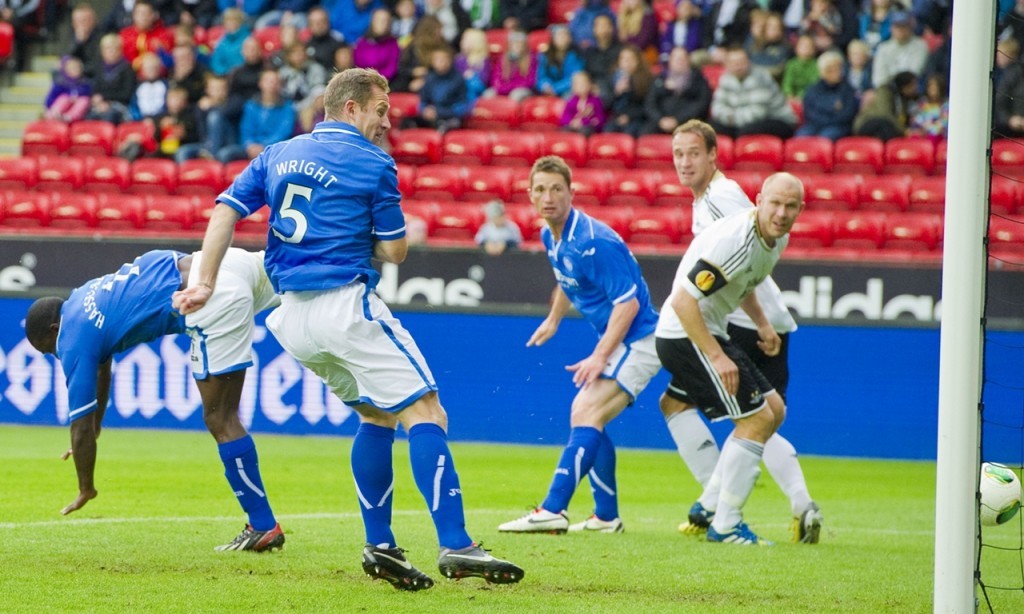
Frazer Wright heads St Johnstone into the lead against Rosenborg. Image: SNS.
After leaving Perth in 2015, Wright, whose most famous goal was the winner away to Rosenborg at the start of the 2013-14 campaign, extended his career by 18 months with Dumbarton before assisting Mackay at Stirling.
He later coached at BSC Glasgow and Stenhousemuir and is now working for a property factoring company.
Steven Anderson
Back post headed goals were the speciality of Anderson, immortalised by his opening goal of the final, when he took full advantage of a misjudgement by Rado Czierniak.
It put Saints in front on the stroke of half-time after an evenly matched first 45 minutes.
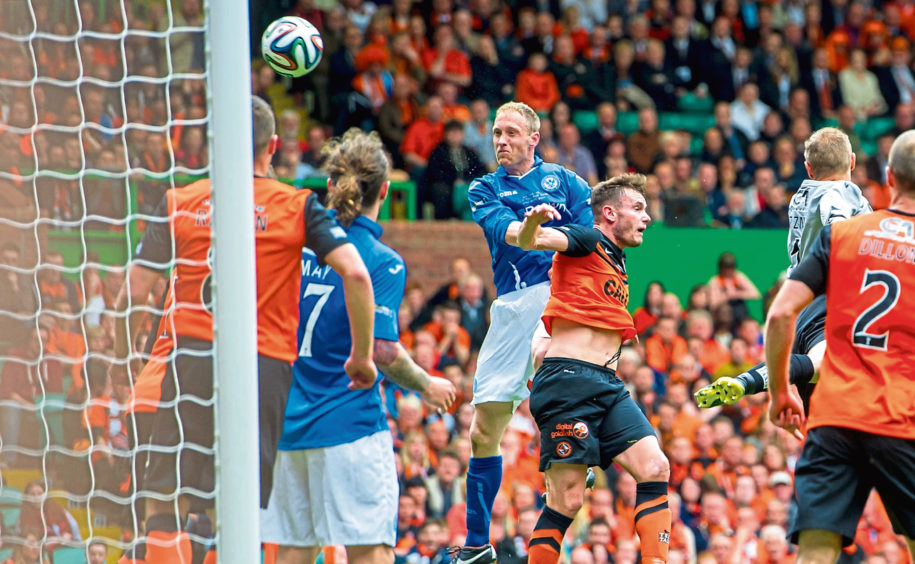
Steven Anderson scores the opening goal. Image: SNS.
Before his 16 years with the club were ended, he broke the all-time appearance record (subsequently passed by Liam Craig).
Anderson has been playing in the East of Scotland Premier Division with Broxburn Athletic this season – winning the title – and is employed by Fife Council as an environmental health technical officer.
Brian Easton
Known to his team-mate’s as the teacher’s (manager’s) pet, ‘Easty’ was every bit as reliable in the final on the left as Mackay was on the other flank.
His solitary goal for Saints was an unforgettable one – a long-range strike in a 5-1 demolition of Aberdeen.
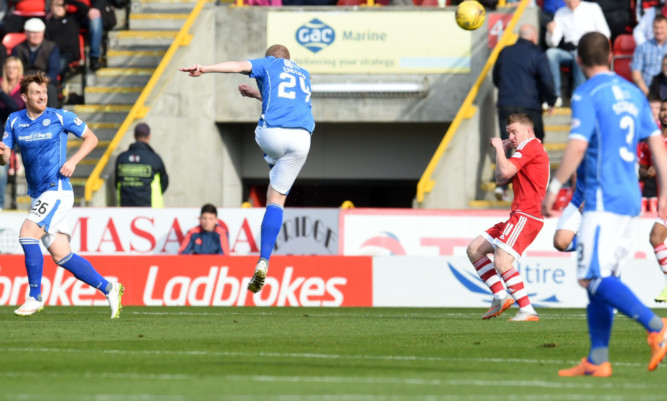
Brian Easton scores his great goal at Pittodrie. Image: SNS.
He left in the summer of 2019, going back to the club where it all began, Hamilton Accies.
Easton was a first team regular with East Fife this season and may yet have more SPFL football left in him yet.
He’s got a BA in business management and a Uefa B licence so has options in and out of football as his playing career comes to an end.
Chris Millar
‘Midge’, who, like Anderson and Mackay, was awarded a testimonial season with Saints, is another yet to hang up the boots.
Actually, he did for a few months, after taking up a coaching post at Clyde.
But since that short stint assisting Brian McLean, he’s been back on the pitch at Troon in the West of Scotland League.
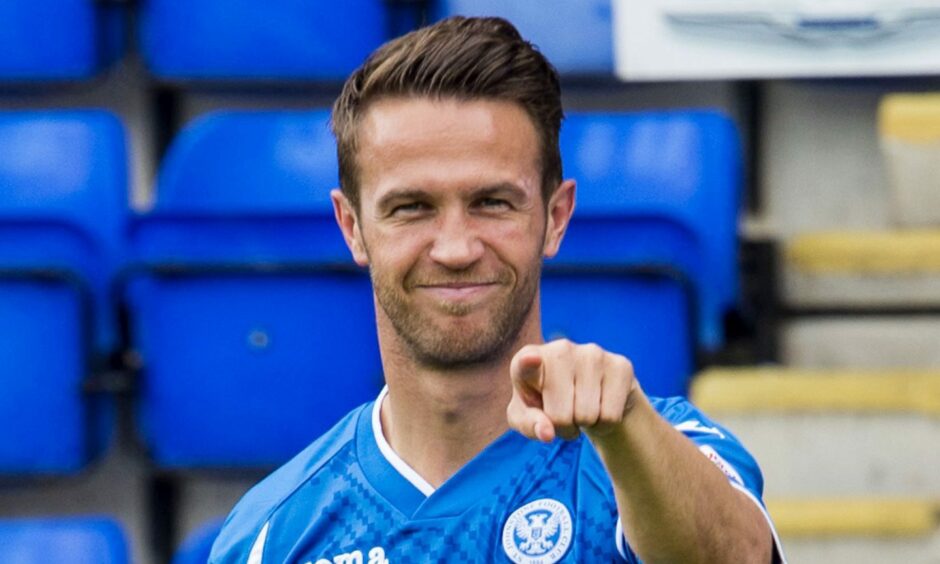
St Johnstone legend, Chris Millar. Image: SNS.
Millar was a perpetual motion dictator of tempo in the Saints midfield back in 2014 and was the last player to find his way home after a weekend of celebrations in the Fair City.
He now runs his own gym in home town, Greenock.
David Wotherspoon
Life hasn’t exactly been too bad for this man since 2014.
For every other member of the team, their career peaked that day.
Wotherspoon, who nearly scored the greatest Scottish Cup final goal of all-time when he tied Robertson in knots, went on to become the only Saints player to start (and win) three finals.
Exposed in a Scottish cup final could never be my LB
(@Spoony_10 u shoulda finished that😉) https://t.co/cwpMTqXZp5 pic.twitter.com/uABJ9zSdKm— Callum Innes🏴 (@SJFCCallum) November 29, 2019
The Spoony Chop (showcased at a World Cup) is the most iconic skill in the club’s history and the man who perfected it is regarded as the greatest ever Saint.
Released last summer, Wotherspoon dropped down to the Championship with Inverness Caledonian Thistle and then Dundee United, where he picked up a Championship title winner’s medal.
He’s now a free agent again after Jim Goodwin decided against offering him a new deal.
James Dunne
Dunne, who came through Arsenal’s youth academy, was snapped up on a half-season loan from Stevenage after Murray Davidson sustained a serious knee injury and Wright couldn’t have wished for a more effective replacement.
He scored on his debut in Saints’ opening Scottish Cup tie at Forfar and was a man of the match contender in the hoodoo-ending semi-final against Aberdeen.
Like Millar, he did the simple things superbly in the final.
Both men out-performed the likes of Paul Paton, Stuart Armstrong and John Rankin.
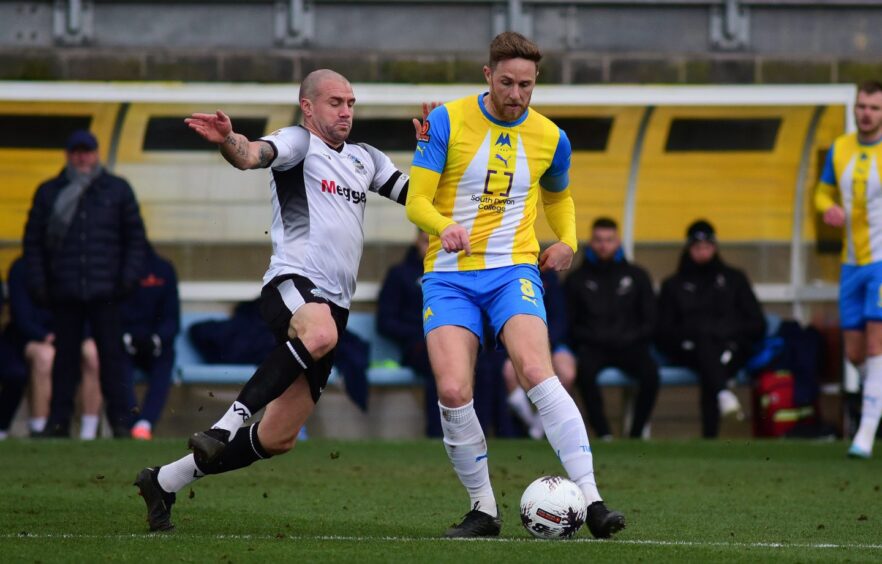
James Dunne playing for Dover Athletic. Image: Shutterstock.
Dunne finished last season with Kent club, Chatham Town in England’s Isthmian League.
Steven MacLean
The scorer of Saints’ stress-ending second goal, which sparked the famous ‘top off’ celebration and encapsulated a team that didn’t know the meaning of a lost cause.
MacLean was the attacking brains of Wright’s side and there has never been a player in blue and white quite like him since.
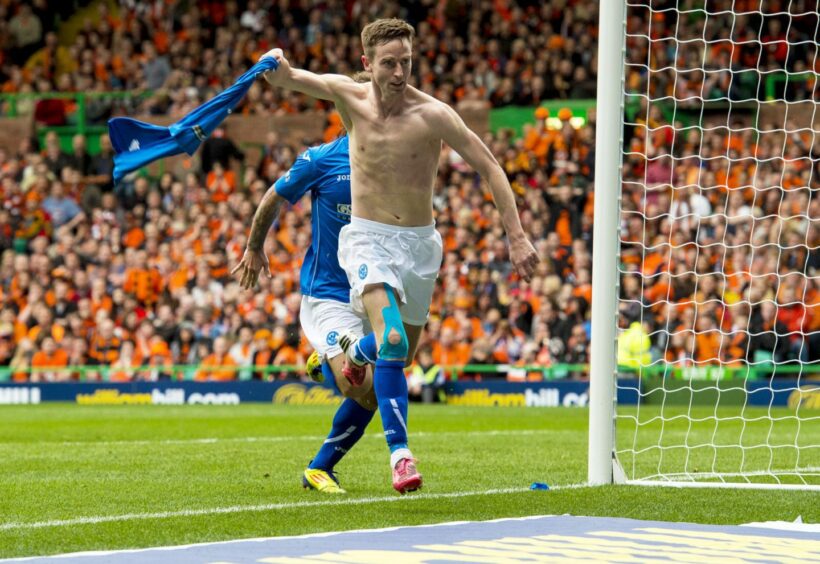
Steven MacLean celebrates his goal. Image: SNS.
He returned to McDiarmid Park to be Callum Davidson’s double-winning assistant and then succeeded him as manager.
After helping to keep Saints in the Premiership last season he was tasked with cutting the budget, while avoiding relegation over a full campaign this time around.
Sacked in the autumn, and replaced by Craig Levein, MacLean hasn’t yet returned to football.
Stevie May
With May 17 on his back, Saints’ prolific goalscorer of that season was the embodiment of Perth destiny.
He, more than anybody, was responsible for the semi-final turnaround.
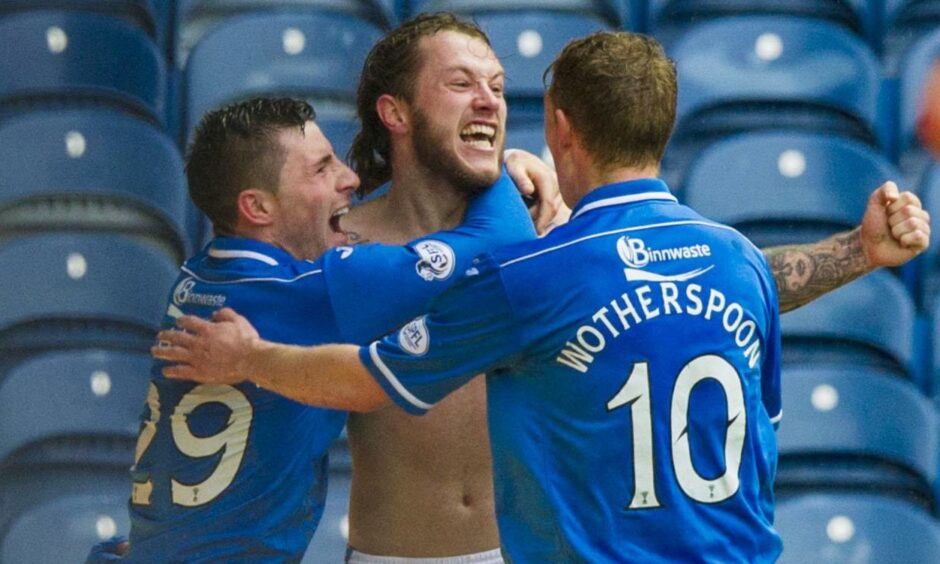
Stevie May celebrates his semi-final winner against Aberdeen. Image: SNS.
May actually had one of the quietest games of an incredible 27-goal season (and didn’t get away with a cheeky attempt to help the ball over the United line with his hand at 1-0).
But the fact that the United defenders feared him more than anyone else, helped others flourish at Celtic Park.
Another three-time cup winner after returning for a second spell, May scored a crucial goal in the second leg of the 2022 play-off final.
He still has one year left on his contract and, after a long spell without a start, has been brought into the team for the last two matches.
Michael O’Halloran
After signing for Saints from Bolton Wanderers in the January, O’Halloran wasn’t yet at the peak of his powers.
That would happen over the following 18 months.
But, even though he neither scored nor assisted, his pace helped get Saints up the pitch during spells of United pressure.
Like May, he made the club good money in the transfer market before returning to win more cups.
His Perth career faded away in his last season and it was far less surprising to see O’Halloran released than Wotherspoon.
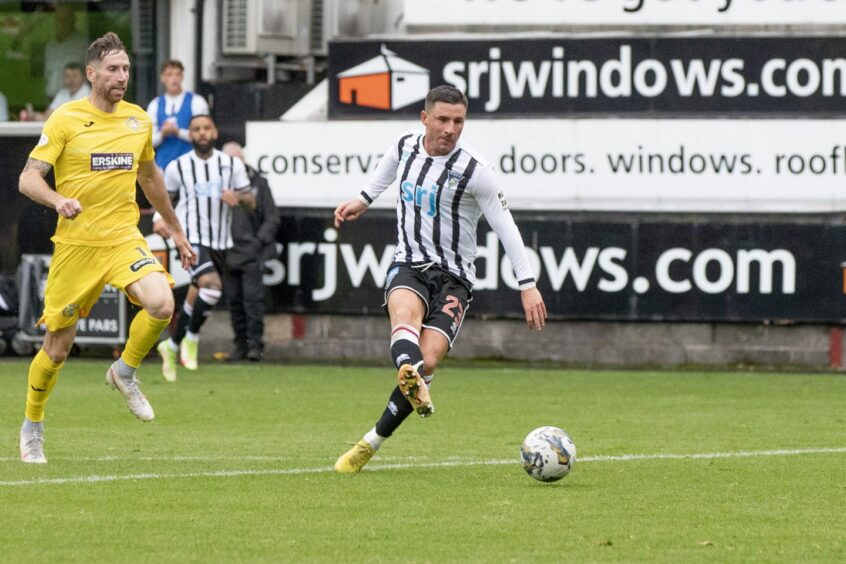
Michael O’Halloran scores his first goal for Dunfermline. Image: Craig Brown/DAFC.
He was reunited with Mackay at East End Park but only scored one goal last season.
Stevie Banks
Dual roles of back up goalkeeper and coach made Banks an important figure at McDiarmid.
He played in the League Cup semi-final defeat to Aberdeen and the Scottish Cup fourth round tie at Forfar – his last senior appearance.
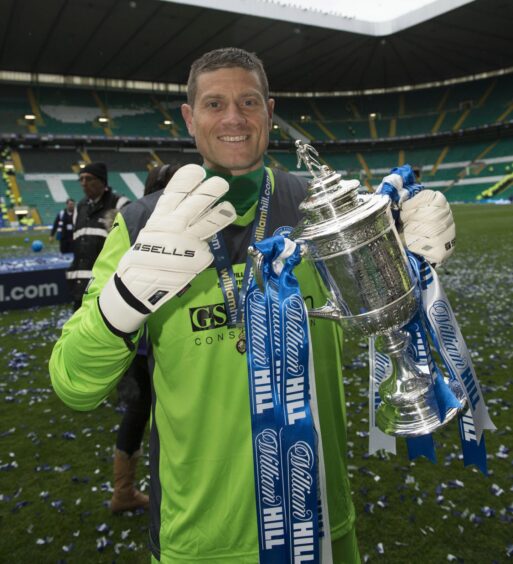
Stevie Banks has three Scottish Cup medals. Image: SNS.
Banks has the claim to fame of three Scottish Cup winner’s medals, without playing – Hearts 2006, Dundee United 2010 and Saints 2014.
He’s currently the head goalkeeping coach at Blackpool.
Paddy Cregg
In his two years with Saints, the Irishman was a reliable performer for Wright.
He was the only substitute to get on in the semi-final but was unused at Parkhead.
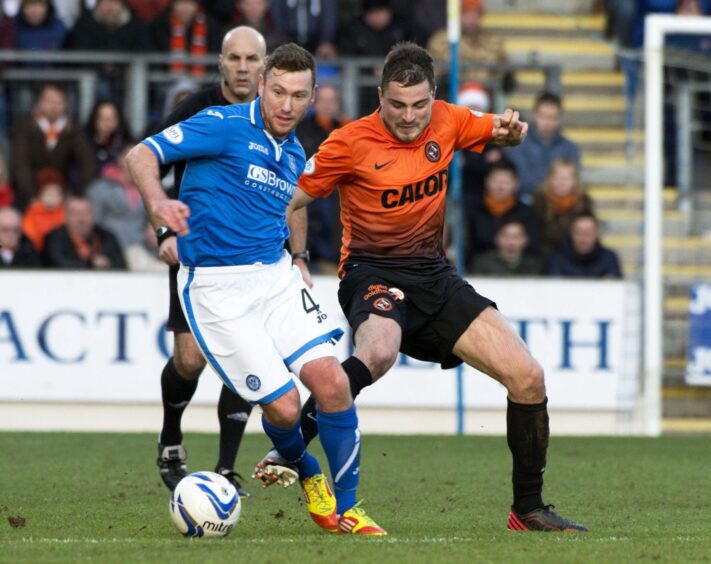
Paddy Cregg in action against Dundee United in a league game. Image: SNS.
After his playing career ended, Cregg was an academy coach at McDiarmid Park and Tannadice before returning to Ireland.
He is currently the assistant manager with Dundalk.
Gary McDonald
One of two substitutes who got game-time in the final, McDonald replaced Wotherspoon to help see the game out after MacLean’s 84th minute goal.
The midfielder played 40 times that season and scored the opening goal in the quarter-final triumph against Raith Rovers.
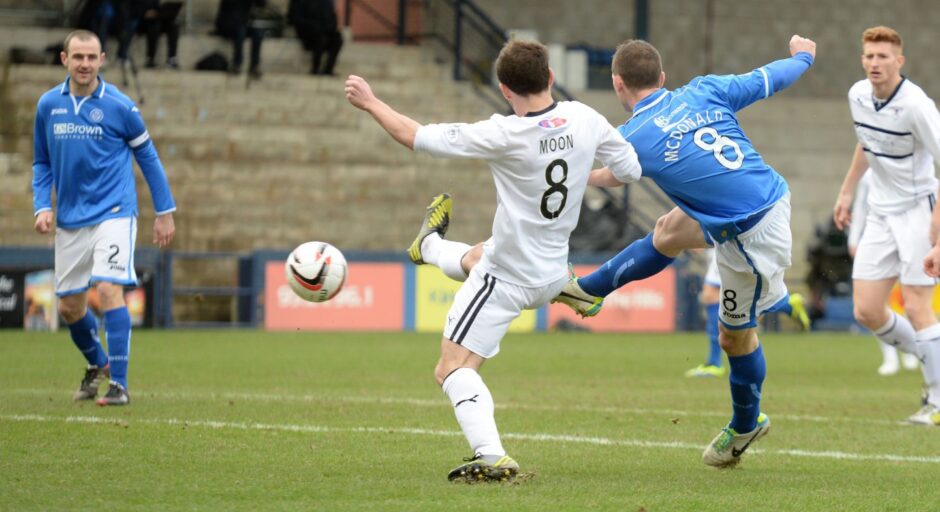
Gary McDonald scores against Raith. Image: SNS.
Wright released him the following January and he had a brief spell with Peterhead before dropping into the juniors with hometown club, Kilwinning Rangers.
He has stayed involved there and helps coach their 2010 boys’ team.
Gary Miller
Miller had two seasons with Saints and featured on over 50 occasions.
Versatility helped get him his place on the bench, though he didn’t come on.
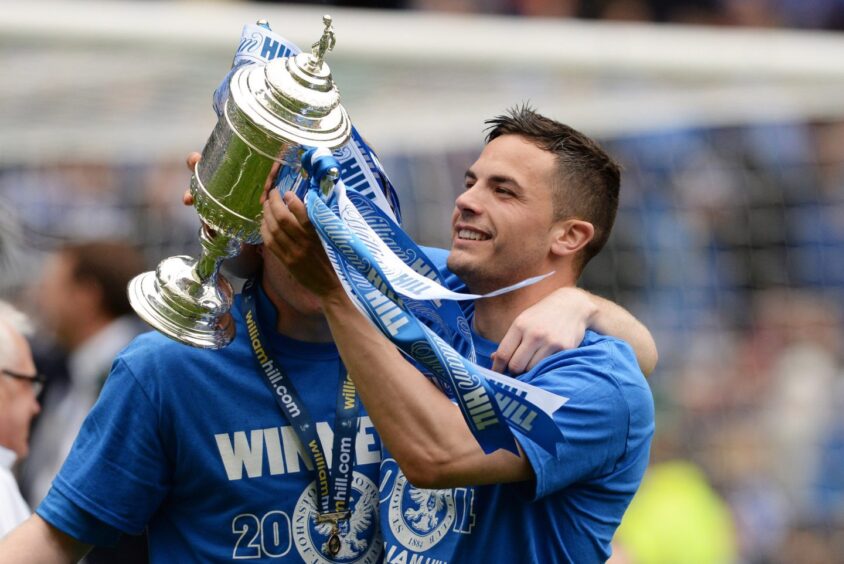
Gary Miller was an unused substitute in the final. Image: SNS.
It was only in 2022 that Miller dropped out of EFL or SPFL football.
He has his A licence and coaches with St Cadoc’s Football Club and Partick Thistle’s academy.
Miller is also a self-employed property investor.
Lee Croft
St Johnstone weren’t a club you’d associate with the English tabloids but Croft’s loan arrival in January 2012 brought with it a bit of showbiz attention due to his relationship with The Only Way is Essex star, Maria Fowler, who was pictured at Easter Road for his debut.
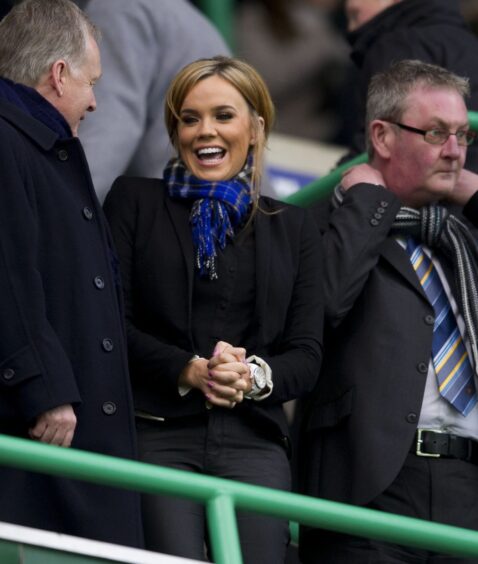
Maria Fowler at Easter Road to watch Lee Croft play for St Johnstone. Image: SNS.
Croft signed permanently in December 2013 and was a regular starter until he injured his hamstring before the cup semi-final.
Although he couldn’t dislodge Wotherspoon or O’Halloran for a start, he was the first substitute introduced on 73 minutes in the cup final, replacing the latter.
Croft is a regular match-day summariser on BBC radio.
Nigel Hasselbaink
Hasselbaink was another player whose chief contribution to the cup run came earlier the competition.
Like MacDonald, he scored in Kirkcaldy.
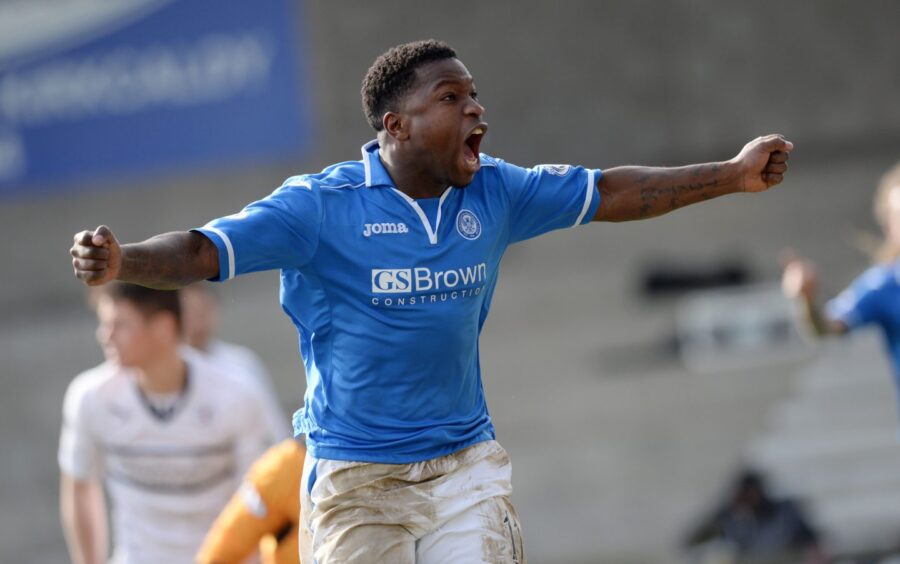
Nigel Hasselbaink gave St Johnstone a 2-1 lead against Raith. Image: SNS.
He left Perth that summer in search of regular football and his career took him to Greece and Israel before a return to the Netherlands.
Hasselbaink spent last season with Amsterdamsche, who play in the Dutch third tier.
Chris Iwelumo
The Scotland international, famous (infamous) for THAT miss at Hampden Park, played for 18 clubs.
St Johnstone, when he was 35, were the second last of them.
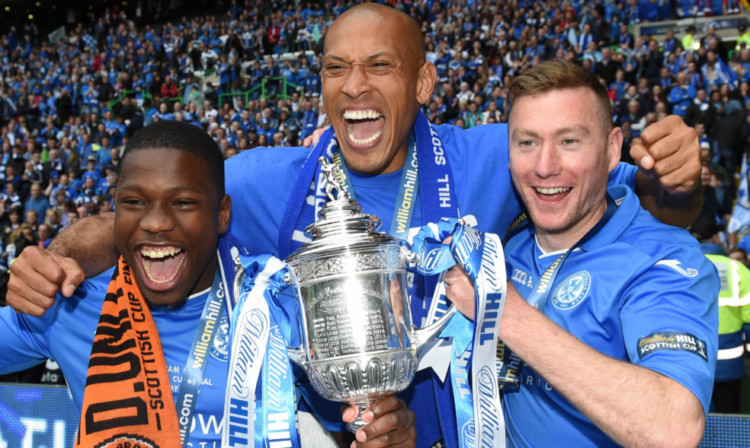
Nigel Hasselbaink, Chris Iwelumo and Paddy Cregg celebrate winning the Scottish Cup. Image: SNS.
He came off the bench nine times, didn’t start and didn’t score.
There was one more season left in Iwelumo – at Chester – before a post-playing career took him into the world of punditry north and south of the border.
He also owns a property business (Lumo Property).